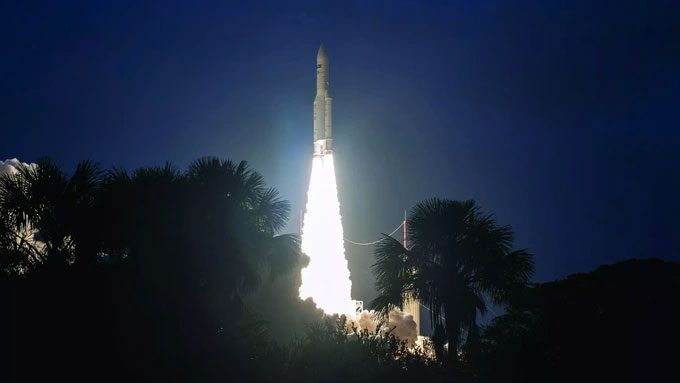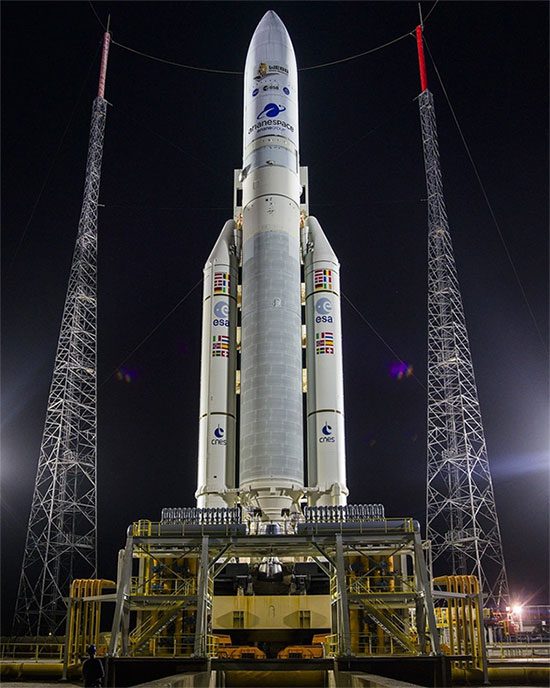The ESA’s Ariane 5 rocket was scheduled to launch today, June 16, but the launch has been canceled due to technical issues.
Ariane 5 – a heavy-lift rocket produced under the authority of the European Space Agency (ESA) and the French National Centre for Space Studies (CNES) was planned for orbit insertion today at the Guiana Space Centre in France.

The Ariane 5 rocket successfully launched two geostationary satellites on July 15, 2015. (Photo: Arianespace).
However, unforeseen technical reasons have led to a postponement of the launch.
According to Arianespace, the French aerospace company managing the mission, it appears that a critical function on the Ariane 5 rocket did not meet safety requirements.
“We detected some concerns regarding the three fuel transmission lines in the engine section of the Ariane 5 rocket,” a representative from Arianespace stated. “Other components such as the launch pad and satellites remain stable and safe.”
It is known that Arianespace engineers will investigate the issue before announcing the next launch date. According to some experts, it is likely that the launch will be postponed until the end of June.

The Ariane 5 rocket on the launch pad with the James Webb Space Telescope in December 2021. (Photo: ESA).
Ariane 5 is a heavy-lift launch vehicle designed to place satellites and other heavy payloads into geostationary orbit or low Earth orbit. According to ESA, this rocket boasts high reliability with affordable launch costs.
Since its debut in 1996, the Ariane 5 rocket has successfully completed over 100 launches, achieving an impressive success rate of 95.4%. Notable missions include the Rosetta comet-chasing mission in 2004 and the collaboration with NASA to launch the James Webb Space Telescope into orbit in December 2021.
Since its first launch, Ariane 5 has undergone improvements in subsequent versions, including: “G,” “G+,” “GS,” “ECA,” and most recently, “ES.” This system has dual-launch capability, allowing it to deploy a maximum of two communication satellites into geostationary transfer orbit.
The Ariane 5 is expected to have its final launch before being replaced by Ariane 6 later this year. For this reason, the launch of Ariane 5 is particularly appealing to space science enthusiasts, marking the conclusion of one of Europe’s most powerful and reliable rockets.


















































